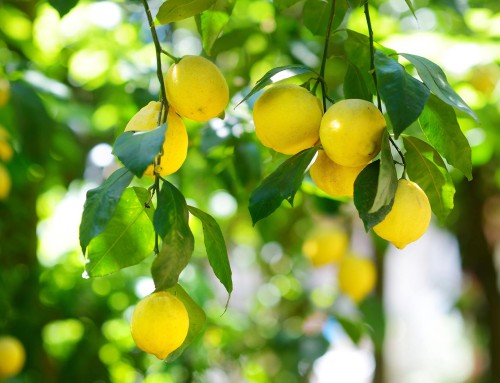
Stress – Going, Going, Gone! How Ayurveda Explains Stress
By John Peterson MD
Imagine that last night you were working so hard on a project report that you could not sleep till 2:00 a.m.
- This morning, you did not hear the alarm, and woke up to find that you’re running terribly late for the meeting where you were supposed to present your report.
- On your way, pouring rain, heavy traffic, and construction work on the highway slowed you down.
- By the time you reached work, the meeting was halfway through — without you, of course. In the cold stillness of the office, you heard your heart thump, loud and dangerous.
Notice something about the above scenario? Most of the things that happened were beyond your control.
What you do now, however, is totally within your control. Don’t try to calm your nerves by grabbing a cup of coffee. That will only give you a false adrenaline rush, and within no time, you’ll feel worse than ever.
What is this “adrenaline rush” anyway?
To put it very simply, adrenaline is nature’s way of helping you deal with an emergency. When stress levels climb, like rivers spilling out of their banks in a flood, your nervous system kicks in, secreting hormones that help you gear up for a “fight or flight” response.
But nature intended this mechanism as an emergency measure. The problem today is that we experience stress so often that our body’s neuro-transmission mechanism is having to kick in many times a day. In other words, our adrenal glands are fatigued and overworked. Result: millions of us are suffering from digestion problems, irritability, weight gain or weight loss, lowered immune function, and just plain exhaustion.
This is how modern science analyses stress. Now let’s see what Ayurveda has to say about it.
How Ayurveda Explains Stress
Stress, in ayurvedic terms, is intimately related to the balance of our three vital energies, or doshas — Vata, Pitta, and Kapha. To a very great extent, our daily habits determine how harmoniously these doshas function. Maintaining them in good balance, especially in the face of everyday stresses, is like constantly fine-tuning a radio in bad weather to be able to get a clear signal.
Stress and its related problems crop up when we fail to “tune” our radios
But this “tuning” is easier — and more fun — to do, if we think about the instant and ample benefits it yields. For instance, if you stay warm in cold weather, you will make your Vata dosha feel balanced. If you avoid eating rice every day, you will make your Kapha dosha calmer. If you drink water throughout the day, your Pitta dosha will be happy. If you take the time to eat a good lunch, you will calm down all your doshas.

What to Do About Everyday Stress
Besides reading more about your doshas, there are some simple things you can do to sweep away daily stress. To begin with, take a good look at where your stresses are originating. Are the factors more external or internal?
- External factors include things such as work pressures, financial problems, too small or too big a home, a nagging spouse or interfering in-laws.
- Internal factors such as lack of sleep, loss of appetite, bad digestion, low self-esteem, or a pessimistic attitude toward life are no less stress-generating.
Good news. All of these factors are perfectly controllable. Nature offers us two basic options: fight, or flight. For most of us, flight is not really an option.
The challenge is to stay and play. Here is how you can do it:
Communicate
A great deal of stress piles up when we refuse to talk about it — even to ourselves. Each time we suppress stress, it piles up like a toxin inside our minds, and slowly seeps into our psyche. The deeper it filters into our consciousness, the more difficult it seems to get rid of it.
But even if you have so far been unwilling to admit to your stresses, you can improve the situation. Talk to someone you can confide in. Or take the time to write a journal and pour out your feelings to yourself. Learn Transcendental Meditation®. Sign up for yoga. Being among other people who are trying to find similar answers will make you feel you are not alone. You’ll start thinking and feeling more positive.
Make a Checklist
At any time during your day, there are little jobs that require attention. When you are swamped with other, more important work, the little “things-to-do” start gnawing at your mind, often subconsciously. You would feel much better if you went ahead and did those things — for example, calling up your dentist to schedule an appointment, sending off an e-mail you’ve been meaning to write for three days, renewing a library book.
Each time you complete a small task, check it off your list. There’s something very comforting about checking a “DONE” box! Break larger projects into smaller ones so they’re not so overwhelming. Each time you do this, you will free up your mind so it can relax for a while.

Turn to Nature
Bring more herbs into your life
Grow them on your windowsill, or start a herb garden — most herbs grow wonderfully well in containers. Brew herbal beverages, or try Maharishi Ayurveda’s range of gourmet mind-body teas such as Be Trim Tea, Take It Easy Tea, and Sniffle Free Tea. Made from the purest, most healing herbs available today, these teas are not only flavourful but also wonderfully calming. Take a bath using such relaxation-inducing essential oils as lavender, chamomile or jasmine.
Eat meals that are high in fresh, natural ingredients
It’s amazing what a big difference your choice of food can make in helping you cope with stress. A morning cup of coffee may be a habit you cannot seem to give up, but caffeine stimulates the adrenal glands to release the stress neurotransmitters, which, over time, tires them. Also, those refined carbs you eat for breakfast — bagel, doughnut, rolls — and the sugar in your coffee affect your blood-sugar levels, which can cause your emotions to swing like a pendulum.
Therefore, don’t start your day with coffee
- Start with a stewed apple.
- Replace store-bought ready-to-eat pasta with whole grains.
- Eat less of yeast-based bread; make more fresh bread.
- Avoid hard, aged cheeses — eat fresh homemade cottage cheese or paneer.
- Don’t buy pre-sliced or canned fruit and veggies. Buy them from a local farmer’s market, process them fresh, and cook them the same day.
- Don’t buy vegetable oil; bring home a jar of ghee or cook in sunflower oil.
- Give your health a boost with Maharishi Amrit Kalash Nectar (MA4), the star Maharishi Ayurveda herbal combination of 38 herbs and fruits. Amrit Kalash Nectar strengthens the immune system, soothes the nerves, and increases ojas – or essential energy.
In these simple ways, you will slowly throw out stress and bring more bliss into your life.
DISCLAIMER: The information in this document is presented for the sole purpose of imparting education on Maharishi AyurVeda and neither the information nor the products are intended to diagnose, treat, mitigate, cure or prevent any disease. If you have a medical condition or are pregnant or lactating, please consult a health professional and it is recommended that you speak with your physician before making significant changes to your diet or routine.





